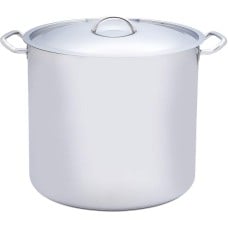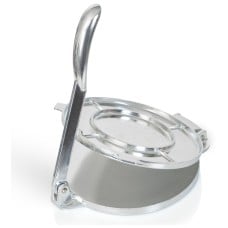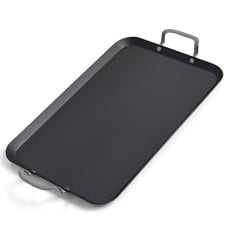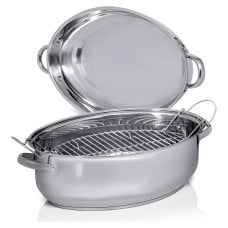Introduction to Stainless Steel and Aluminum Cookware
When it comes to choosing the right cookware for your kitchen, the options can be overwhelming. Two popular choices that often come up in this debate are stainless steel and aluminum cookware. Both materials have their own unique properties and benefits. In this article, we will explore the advantages and disadvantages of stainless steel cookware and aluminum cookware, helping you make an informed decision.
Advantages of Stainless Steel Cookware
Stainless steel cookware has long been favored by professional chefs and home cooks alike. One of the significant advantages of stainless steel is its durability. It is a highly robust material that can withstand high temperatures and is resistant to scratches and dents. Additionally, stainless steel is non-reactive, meaning it won't interact with acidic or alkaline ingredients, preserving the natural flavors of your food. Another advantage of stainless steel cookware is its versatility. It can be used on various cooktops, including gas, electric, and induction. Stainless steel pans also distribute heat evenly, ensuring your food is cooked uniformly. Moreover, stainless steel cookware is easy to clean, either by hand or in a dishwasher, making it a convenient choice for everyday cooking. It's worth mentioning that not all stainless steel is created equal. Look for cookware made with T304 stainless steel, as it is considered one of the best types for cookware. T304 stainless steel contains chromium and nickel, which enhances its corrosion resistance and makes it highly suitable for cooking.
Disadvantages of Stainless Steel Cookware
While stainless steel cookware offers numerous benefits, it also has a few drawbacks to consider. One of the main disadvantages is its poor heat conductivity. Stainless steel alone is not an excellent conductor of heat, which can result in uneven cooking if not properly managed. However, many stainless steel cookware brands address this issue by incorporating an aluminum or copper core in the base, enhancing heat distribution. Another potential downside of stainless steel cookware is its relatively higher price compared to other materials. However, it's essential to consider stainless steel cookware as a long-term investment due to its durability and longevity. With proper care, stainless steel cookware can last for years, making it worth the initial investment.
Advantages of Aluminum Cookware
Aluminum cookware has gained popularity due to its excellent heat conductivity. Aluminum is a highly efficient heat conductor, allowing for quick and even heating throughout the pan. This property makes it ideal for tasks that require precise temperature control, such as sautéing or frying. Additionally, aluminum cookware is often more affordable than stainless steel, making it an attractive option for budget-conscious consumers. Aluminum cookware is also lightweight, making it easy to handle and maneuver in the kitchen. This feature is particularly beneficial for individuals with limited strength or those who prefer lightweight utensils. Furthermore, aluminum cookware is known for its responsiveness to temperature changes, providing a quick and efficient cooking experience.
Disadvantages of Aluminum Cookware
One of the significant disadvantages of aluminum cookware is its reactive nature. When cooking with acidic or alkaline ingredients, aluminum can leach into the food, potentially affecting its taste and quality. To mitigate this, many aluminum cookware manufacturers now provide non-stick coatings or anodized finishes to create a barrier between the food and the aluminum surface. Another drawback of aluminum cookware is its susceptibility to scratches and dents. Aluminum is a softer material compared to stainless steel, making it more prone to damage over time. Additionally, aluminum cookware is not suitable for induction cooktops unless it has a magnetic stainless steel base, which limits its compatibility with certain cooking methods.
Conclusion
In the debate between stainless steel cookware and aluminum cookware, both materials have their merits. However, when considering overall performance and durability, stainless steel cookware tends to be the superior choice. Its exceptional durability, non-reactive nature, and compatibility with various cooktops make it a versatile option for any kitchen. Opting for T304 stainless steel cookware ensures you're getting the best quality available. While aluminum cookware offers excellent heat conductivity and affordability, its reactivity and susceptibility to damage may be deterrents for some. Ultimately, the choice between stainless steel and aluminum cookware depends on your personal preferences, cooking style, and budget. It's essential to weigh the pros and cons of each material and select the option that best aligns with your needs. With proper care and maintenance, your chosen cookware can become a reliable companion in the kitchen, enhancing your cooking experience for years to come.









